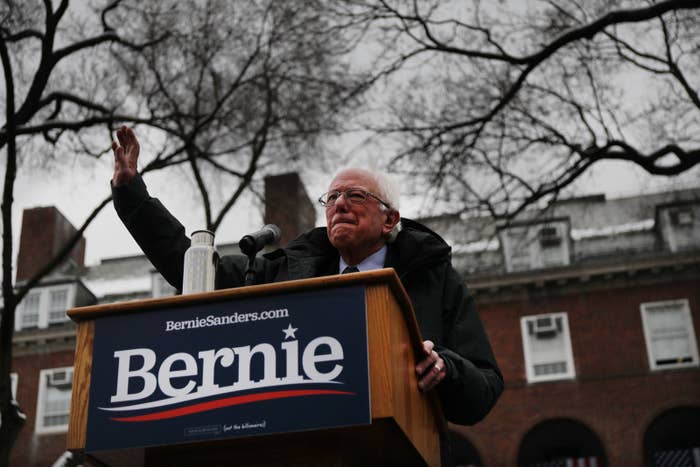
In his second presidential bid, Bernie Sanders will uphold a pledge from his 2016 campaign to abstain from "personal attack ads" against his opponents, but is not ruling out the possibility of ads that draw contrasts on the basis of policy “differences,” an aide said Wednesday.
"Bernie wants this to be a campaign of ideas and will be more than happy to discuss differences he has on the issues," Arianna Jones, a Sanders campaign spokesperson, said in a statement.
"However, he has never, nor will he, engage in personal attack ads."
When the Vermont senator jumped in the last Democratic primary in May 2015, during a press conference in Washington, he told reporters he'd "never" run a negative ad in his career. "I hate and detest these 30-second, ugly negative ads," he said. Sanders later promised a campaign that would be "driven by issues and serious debate, not political gossip, not reckless personal attacks or character assassination," as he put it in his May 2015 launch speech.
Months later, his disdain for negative campaigning ran up against the realities of a tightening contest against Hillary Clinton.
On the eve of the caucuses in Iowa, the state where the presidential nominating process begins every four years, Sanders released a 30-second television ad titled "Two Visions" that did not mention Clinton by name but cast his rival as a Democrat compromised by financial contributions from big banks. “There are two Democratic visions for regulating Wall Street,” Sanders said in the ad. “One says it’s okay to take millions from big banks, and then tell them what to do.”
Clinton aides quickly seized on the ad. Her pollster, Joel Benenson, accused Sanders of "going negative" and running "the most negative campaign" in the history of Democratic primaries. (Clinton had been criticizing Sanders, particularly on health care policy, for weeks.)
Sanders, the 77-year-old democratic socialist and longtime independent, entered the crowded primary last month, holding a pair of launch speeches in Brooklyn and Chicago that sought to highlight more of the senator's personal upbringing and formative political years.
His policy differences with other leading candidates — such as Sens. Kamala Harris, Elizabeth Warren, and Cory Booker — may be less pronounced than the ones he shared with Clinton. All three Democratic senators signed on as cosponsors in 2017 to his signature "Medicare-for-all" bill in the Senate. And four years after the last presidential election cycle, much of the Democratic field talks about policy and Democratic ideology more like Sanders than like Clinton circa 2016.
Still, in the statement provided Wednesday, the Sanders campaign indicated an openness to ads that "discuss differences he has on the issues."
Asked if Sanders would renounce negative ads across the board as he had in his last campaign, an aide referred again to the statement.
